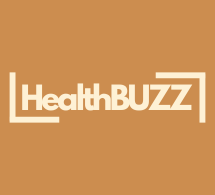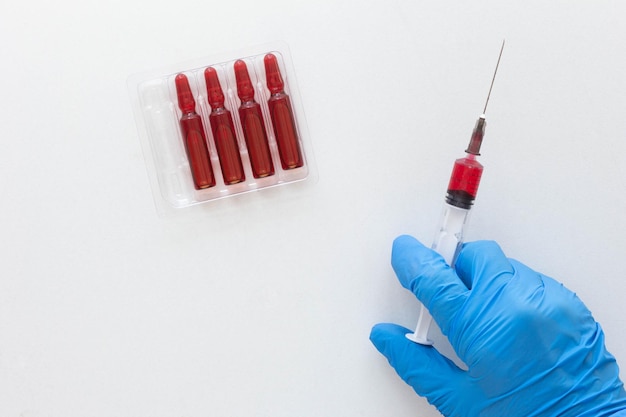Riboflavin Health Benefits
If you’re feeling good, you’re likely getting the right nutrition, including essential nutrients like riboflavin. Riboflavin, or vitamin B2, plays a crucial role in maintaining your health, offering several key benefits.
Migraine Relief
People who don’t get enough riboflavin, including both adults and children, often experience frequent headaches and migraines. However, increasing riboflavin intake can reduce both the frequency and intensity of these headaches. A study involving 55 patients found that those who took 200-400 mg of riboflavin experienced significantly fewer migraines and headaches compared to those who received a placebo.
Cataract Prevention
The National Institute of Health suggests that higher intake of riboflavin, along with niacin, may lower the risk of cataracts. Although more research is needed to fully understand riboflavin’s interaction with eye health, the initial findings are promising.
Improved Iron Absorption
Iron is vital for growth and development, and iron deficiency can lead to anemia, especially in pregnant or nursing women and young children. Riboflavin enhances the body’s ability to absorb both iron and zinc, making these minerals more available for use. This improved absorption helps prevent iron deficiency and its related symptoms.
Red Blood Cell Production
Riboflavin is essential for the production of red blood cells. Additionally, it helps lower homocysteine levels, potentially protecting against heart disease. Riboflavin also supports muscle function and can help prevent cramping.
Dietary Sources of Riboflavin
Some of the richest sources of riboflavin include almonds, brewer’s yeast, broccoli, spinach, eggs, milk, yogurt, wild rice, and organ meats. Since riboflavin is a water-soluble vitamin, boiling foods can cause a significant loss of this nutrient. Therefore, consuming raw foods when possible is beneficial.
Selected Food Sources of Riboflavin
– Beef liver, pan fried, 3 ounces: 2.91 mg (171% DV)
– Breakfast cereals, fortified with 100% of the DV for riboflavin, 1 serving: 1.7 mg (100% DV)
– Oats, instant, fortified, cooked with water, 1 cup: 1.16 mg (65% DV)
– Yogurt, plain, fat-free, 1 cup: 0.63 mg (35% DV)
– Milk, 2% fat, 1 cup: 0.53 mg (29% DV)
– Beef, tenderloin steak, boneless, trimmed of fat, grilled, 3 ounces: 0.42 mg (24% DV)
– Clams, cooked with moist heat, 3 ounces: 0.42 mg (24% DV)
– Mushrooms, portabella, sliced, grilled, ? cup: 0.32 mg (18% DV)
– Almonds, dry roasted, 1 ounce: 0.32 mg (18% DV)
– Swiss cheese, 3 ounces: 0.32 mg (18% DV)
– Rotisserie chicken, breast meat only, 3 ounces: 0.21 mg (12% DV)
– Egg, whole, scrambled, 1 large: 0.21 mg (12% DV)
– Quinoa, cooked, 1 cup: 0.21 mg (12% DV)
– Bagel, plain, enriched, 1 medium: 0.21 mg (12% DV)
– Pink salmon, canned, 3 ounces: 0.21 mg (12% DV)
– Spinach, raw, 1 cup: 0.16 mg (9% DV)
– Apple, with skin, 1 large: 0.16 mg (9% DV)
– Kidney beans, canned, 1 cup: 0.16 mg (9% DV)
– Whole wheat macaroni, cooked, 1 cup: 0.16 mg (9% DV)
– Whole wheat bread, 1 slice: 0.16 mg (9% DV)
– Atlantic cod, cooked with dry heat, 3 ounces: 0.16 mg (9% DV)
– Sunflower seeds, toasted, 1 ounce: 0.16 mg (9% DV)
– Crushed canned tomatoes, ? cup: 0.16 mg (9% DV)
– White rice, enriched, long grain, cooked, ? cup: 0.16 mg (9% DV)
Riboflavin Deficiency
Inadequate nutrition can have serious consequences, and riboflavin deficiency is no exception. Common symptoms of a riboflavin deficiency include fatigue, rapid eye fatigue, throat swelling and soreness, a swollen tongue with a deep red color, cracks and sores at the corners of the mouth, digestive problems, slowed growth in children or during pregnancy, and increased sensitivity to light.
Riboflavin is particularly important for women. Research has shown that physical activity increases the amount of riboflavin women need. For pregnant women, riboflavin deficiency is linked to a higher risk of preeclampsia. Low levels of riboflavin and nicotinamide are also associated with an increased risk of congenital heart disease in babies.
How to Consume More Riboflavin
Riboflavin is widely available as a standalone supplement or as part of B-complex vitamins. Supplementing riboflavin along with other antioxidants and metabolic boosters is an excellent way to support good health, especially if your diet lacks sufficient nutrients.



